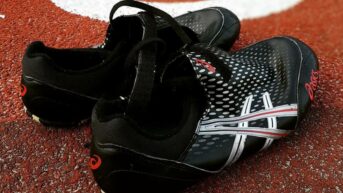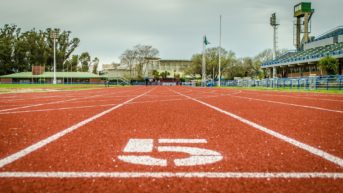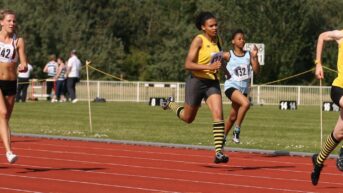
We Value Your Privacy
We use cookies to give you the best online experience, please be aware of our Privacy Policy.

We use cookies to give you the best online experience, please be aware of our Privacy Policy.

As part of our series of tips for parents of young athletes this article looks at competition for young athletes and how it relates to a successful athletics career. Lets ask a question that we should all know the answer to:
Does anyone remember a good junior athlete?
More often than not the answer will be no or if it is yes then it will go along the lines of:
Do you remember X athlete what ever happened to them?
So lets explore competition for a young athlete competing in athletics.
Background
Athletics is classified as late specialisation sport meaning it will take longer for athletes to reach their full potential.
An example of a sport classified as early specialisation in Gymnastics where athletes specialise earlier.
Sports scientists have found that it can take between eight to twelve years of training for a talented athlete to reach elite level. Based on this research a number of models have been developed which identify appropriate training/competition for athletes physical development.
Competition Tips
Outlined below are our top tips for parents of young athletes. These tips are provided by our experience as coaches to athletes from beginner to international level and recommendations from British Athletics and England Athletics on competition for young athletes.
Tip #1 – Make sure athletics is FUN
A successful athlete is one that enjoys what they do, so making sure athletics is fun for your child is so important. Both competition and training should be fun and something they enjoy. The UK Athletics Athlete Development Model shows that the focus for athletes aged 8 – 11 attending primary school should be on having fun. Sportshall Athletics competitions are a perfect introduction to athletics for young athletes both via the school games competition programme or club competitions. As athletes develop and mature athletics should still be fun.
Tip #2 – Variety is the spice of life
Young athletes up to the age of 12 (UK Athletics Development Model) should experience as many different sports and activities as possible and there should not be a focus of one sport over another. During these years both boys and girls will pick a range of fundamental movement skills and patterns required for training in the future. The next stage of development would see young athletes aged between 12 – 16 years old exposed to as many different event groups as possible (running, jumping and throwing). As this stage in an athletes career it is hard to predict or know what their best event will be when they are fully mature so experiencing a range of event groups will help. Elite athletes training programmes consist of running, jumping and throwing drills so having experience of these event will help build the foundations for their future.
Tip #3 – Its a Marathon not a Sprint
British Athletics states the following:
“While there is a great deal of variance between individuals and events, in terms of the age at which athletes
achieve their best performances, British athletes are generally not successful at the highest levels until they are into their mid to late twenties.”
So if a young athlete starts in athletics at the age of 7 or 8 years old you are looking at maintaining their interest in the sport for up to 15 years possibly more. Therefore it is important that coaches and parents do not treat a young athletes like an Olympic athlete from the start. Allow young athletes to enjoy the sport through fun training and competition, look to plan a young athletes training and competition programme to maximise the chances of success as a senior athlete.
Tip #4 – Quality over quantity
As with everything it is important for young athletes to take part in fewer quality competitions in a season rather than too many competitions. As we have already discussed a young athlete could be in the sport for many years and making sure they don’t get bored or burnout/injured due to too much training or competition is vital to their success. Therefore coaches should look to plan competitions for young athletes and explain to the young athlete and their parents what they expect. A good number of competitions in a season would be 4 – 8 and this would increase once athletes reach an older age group. Elite level athletes usually aim for 6 – 8 competitions in their event to reach their peak. The competition emphasis for young athletes should be as follows:
9 – 11 years old – Fun and Local Competitions
12 – 15 years old – Club and Regional Competitions
15 – 18 years old – As above plus national early international competition
18+ years old – As above but moving towards elite level competition
Tip #5 – Why are they doing the sport?
One important question to ask your child is why are they doing athletics? Hopefully they will say it because “I love it” or “I enjoy it” if they answer is something different then you need to ask yourself the question if they really want to be doing athletics.

Read our top tips for parents looking to buy athletics spikes

Learn the basics of an athletics dynamic warm up.

Need to improve your reaction times? Here we show you one way to improve your reactions using just a £1 coin…